Shale Gas and Tax Havens Are Expected To Dominate EU Summit on May 22
Adelina Marini, May 22, 2013
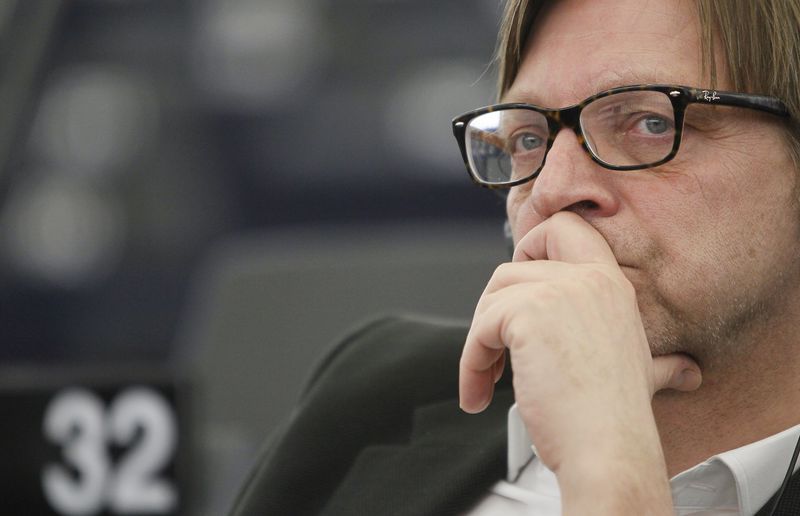 "Don't misunderstand me. I think it is very important to tackle tax evasion, tax fraud and tax havens. But I wonder if putting on paper more conclusions will help us forward. That's simply more of the same. The Council said it already in 2010 and 2011". This is what former Belgian Prime Minister and now leader of the Liberal group in the European Parliament Guy Verhofstadt said during the debate in Strasbourg on the occasion of today's EU summit in Brussels, during which the heads of state and government will discuss how to use the potential of the incomplete common energy market and the strictly national tax policies.
"Don't misunderstand me. I think it is very important to tackle tax evasion, tax fraud and tax havens. But I wonder if putting on paper more conclusions will help us forward. That's simply more of the same. The Council said it already in 2010 and 2011". This is what former Belgian Prime Minister and now leader of the Liberal group in the European Parliament Guy Verhofstadt said during the debate in Strasbourg on the occasion of today's EU summit in Brussels, during which the heads of state and government will discuss how to use the potential of the incomplete common energy market and the strictly national tax policies.
European Council President Herman Van Rompuy asked the leaders three questions: what can be done at EU level to boost European competitiveness, growth and jobs by increasing energy efficiency? What should be done to develop indigenous resources (which is obviously an euphemism of shale gas)? How to achieve a more predictable energy policy as a condition to attract investment for the construction of modern infrastructure? Thus put, the questions require not a several hour long summit, rather a several days long, but on behalf of the Presidency Lucinda Creighton, the Irish EU affairs minister, said in Strasbourg that today's summit will be a "relatively brief summit", but instead it will be aimed at Europe's future competitiveness.
From the debate in the Europarliament it could be suggested that the questions Van Rompuy puts forward will hardly be interesting to anyone. Rather, it is more realistic to expect that the talks will focus on two major points: shale gas and fighting tax havens.
Easy with the shale gas!
In his statement before the MEPs, European Commission chief Jose Manuel Barroso, who seems more ambitious for this European Council than Herman Van Rompuy, said the EU needed a balanced, common European approach for shale gas. It seems the Commission, although it seems divided inside, will push forward to use the potential of shale gas, often called "unconventional hydrocarbons", as Barroso even announced that a special initiative is being prepared. Not the same opinion shared the EU commissioner for climate change, the Dane Connie Hedegaard, who recently said that Europe did not need a shale revolution of the US-type and that it would be better to focus on energy efficiency which could deliver much more. In a similar vein was the statement of the Presidency.
Lucinda Creighton also said in Strasbourg that a special focus should be put on energy efficiency. The leader of the group of Socialists and Democrats in the European Parliament, Austrian Hannes Swoboda, called for a more cautious approach toward the shale gas. Extraction could have serious consequences on the environment, he said. And according to the co-chair of the group of Greens and the European Free Alliance, Daniel Kohn-Bendit (France), choosing shale gas is a return to the past. This is energy which would cost much more because the harms it would cause will have to be paid for.
The EU has only climate policy, no energy policy, said the chairman of the group of European Conservatives and Reformists, Michael Callanan (UK). He pointed out that the EU was blindly following some targets in climate policy, destroying the industry and thus influencing growth and employment. An overall energy strategy of the EU is needed, which, however, will not apply the one-size-fits all approach. It is worth noting, that the responsible for energy EU commissioner Guenter Oettinger (Germany), who had to listen to an almost four hour long debate which was dominated by the taxation topic, did not mention even a word about shale gas. He also pointed out that energy efficiency is good, saying that it should be thought about those industries that consume a lot of energy. Such industries are steel, textile and ceramics industries. There the costs for energy are much higher than labour costs.
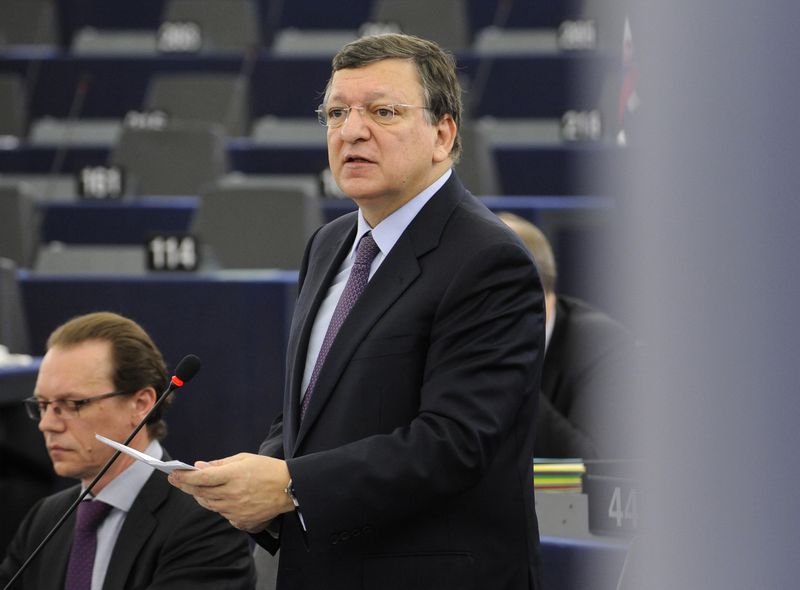 The energy issue, which is one of the two topics on today's agenda, did not get the attention it deserves during the continuous debate in Strasbourg, which was, indeed, incommensurable with the ambition Jose Manuel Barroso emanated. In the end of his speech, he said that Europe is facing a very clear choice - to invest its scarce resources in own sustainable and smart energy or to pay for imports. And the data the Commission distributed weeks before the council show unequivocally that at this stage the battle is won by import. It is very likely today the leaders, too, to pay apathetic attention to the issue as the European Parliament did.
The energy issue, which is one of the two topics on today's agenda, did not get the attention it deserves during the continuous debate in Strasbourg, which was, indeed, incommensurable with the ambition Jose Manuel Barroso emanated. In the end of his speech, he said that Europe is facing a very clear choice - to invest its scarce resources in own sustainable and smart energy or to pay for imports. And the data the Commission distributed weeks before the council show unequivocally that at this stage the battle is won by import. It is very likely today the leaders, too, to pay apathetic attention to the issue as the European Parliament did.
Taxes to be included in the European Semester
Much more time was spent on the tax issue. One of the reasons why is that this is still not an exhausted topic on the European agenda, and recently it emerged under the spotlight due to the revelations of a network of investigative journalists who showed that a significant number top politicians and statesmen from around the world own offshore accounts. The Parliament discussed specifically two non-legislative resolutions. One was prepared by Slovene Mojca Kleva Kekuš (Socialists & Democrats) and deals with the fight against tax fraud and tax havens, and the second is prepared by Hungarian Ildikó Gáll-Pelcz (EPP), who reviews growth potential through coordination of tax policies.
Although tax policy is entirely within national competences, the attempts to be brought up to the European level continue. With their reports, the two MEPs call on the Council, if anything, at least to take some of their proposals into account. And in their resolutions there are several that will probably not be liked very much by the leaders for whom tax sovereignty is the last thing they would every cede to Brussels. Ms Kekuš calls in her report on the Commission to prevent national, regional and local authorities not to provide state aid or funding of any kind to non-EU countries and companies that violate the Union's tax standards. The Slovene MEP breaks the taboo about the consolidated base for corporate tax proposing the member states to agree on a compulsory base. In the same spirit was the statement of Ivailo Kalfin, Bulgarian MEP (S&D), who called the companies registered in tax havens not to be allowed access to public procurement and public funds. "When offshore companies invest in banks, media, telecoms, a large sector of the economy is managed by shareholders whose responsibility is not clear", Mr Kalfin argued.
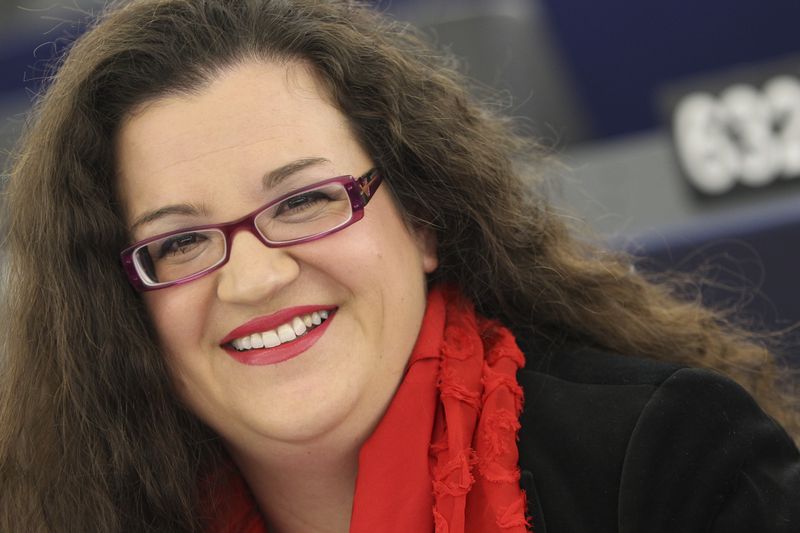 Abolishing bank secret, definition of tax haven, creating a black list of tax havens, abolishing the double taxation conventions with blacklisted countries are all part of the proposals of the MEP from the S&D group. Much more feasible are the demands of Ms Gáll-Pelcz from Hungary, who believes that without great moves a lot of financial benefits can be squeezed from the tax system. For instance, the taxes for export oriented activities could be reduced as a first step to boost economy and as a second step the taxes could be adjusted to boost jobs creation.
Abolishing bank secret, definition of tax haven, creating a black list of tax havens, abolishing the double taxation conventions with blacklisted countries are all part of the proposals of the MEP from the S&D group. Much more feasible are the demands of Ms Gáll-Pelcz from Hungary, who believes that without great moves a lot of financial benefits can be squeezed from the tax system. For instance, the taxes for export oriented activities could be reduced as a first step to boost economy and as a second step the taxes could be adjusted to boost jobs creation.
Reducing taxation for research and development has long-term benefits, the MEP from EPP believes. Hers is another interesting idea which proposes the creation of a "smart and coordinated common European tax snake". This is a system which does not require harmonisation of national taxation systems, but only coordination the purpose of which will be to take into account the cuts and increases in every tax system. In order for the "snake" to work well, it is necessary to be incorporated in the European Semester which monitors the budgets of the member states, their macro economic imbalances and in general, it plays the role of a coordinator of economic and budgetary policies. The Hungarian MEP also believes that it is a good idea to follow closely tax policies of the member states, taking into account their economic backgrounds and their future perspectives.
Countries where labour costs are higher compared to productivity and where jobs creation is hampered, it is possible to study measures that could reduce costs or increase productivity. Ms Gáll-Pelcz does not go as far to be more specific.
The MEPs remained heterogeneous in terms of the subtopics in the tax issue as some focused on tax havens, others on fraud, while third spoke in general. There were also the traditional Anglo-French ridicules. For example, British MEP Martin Callanan said that tax policy is a prerogative of the member states and that should remain so. After all, he said, if France wants to increase taxes it should be able to do so and the last businessman left in France should turn the lights off before leaving. Beyond ridiculing, he was of the opinion that EU should interfere only where there is an illegal way of avoiding taxes. It is important to establish standards for information exchange as the Commission ambition is such exchange to start working more effectively as of 2015.
For Green Daniel Kohn-Bendit the situation was very simple. If Google earns 3 euros in France it should pay the taxes on these 3 euros in France. If it made 1.5 euros in India, it has to be taxed in India. "What is so complicated about this?", he asked. The big problem, according to him, were tax havens and that is why the focus should fall on agreeing new agreements with them.
Euroscepticism and unemployment should be the issues at the summit
The leaders of two big groups in the European Parliament - S&D and ALDE - entirely turned their backs on the set topics and raised other issues instead which, according to them, should be a priority for the leaders. For Hannes Swoboda (Austria) this is unemployment. The Council should not lose sight of the current crisis. He again attempted to turn the attention on the big controversy in the past months in Europe - austerians vs. spenders - by quoting Keynes. During impetuous upsurge should be applied 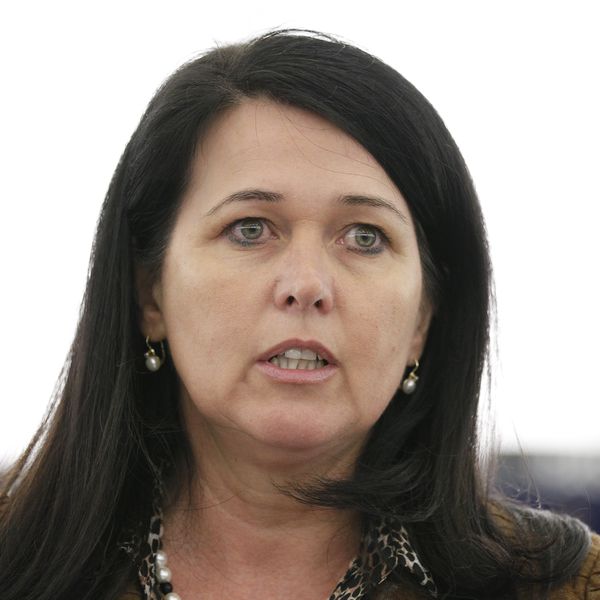 measures for fiscal discipline, not during a crisis. Instead of us working on specific issues, we are risking to lose sight of the our general problems, thus putting at stake Europe itself, the Austrian MEP added.
measures for fiscal discipline, not during a crisis. Instead of us working on specific issues, we are risking to lose sight of the our general problems, thus putting at stake Europe itself, the Austrian MEP added.
About Europe's future was again concerned Guy Verhofstadt as well, who said the European Council had to discuss the growing euroscepticism. He quoted a recent poll which shows a sharp decline of support for the EU. And this is not because suddenly people became nationalists, the result is desperation with the failure of European leaders to overcome the crisis, said Mr Verhofstadt. Moreover, he added, euroscepticism leads to closing the doors of the single market. "But it is not only a question of rationality and economics. It is also a question of sovereignty. What do we want? To shape together the world we live in? Or, like Mr Farage seems to like, watching the outside world from the pub and praising the good old days? The choice is between relevance within the European Union or irrelevance outside it", added the former prime minster of Belgium. But hardly the moods will be as fateful in Brussels as they were in Strasbourg.
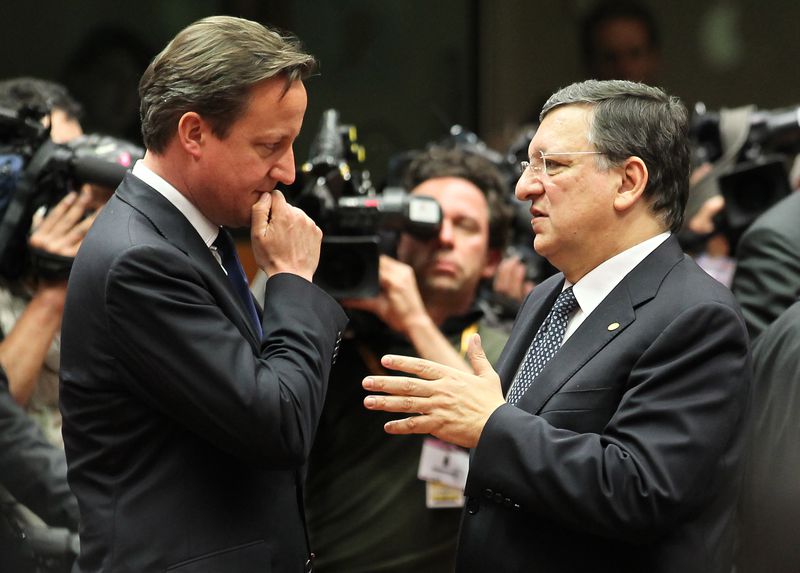 David Cameron, Jose Manuel Barroso | © Council of the EU
David Cameron, Jose Manuel Barroso | © Council of the EU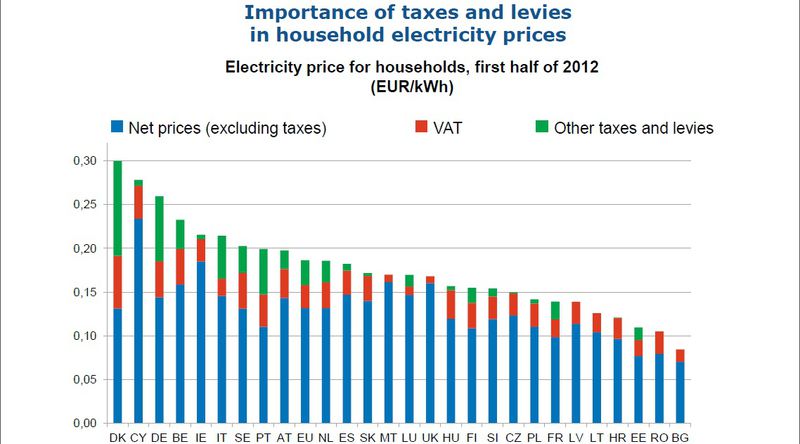 | © European Commission
| © European Commission